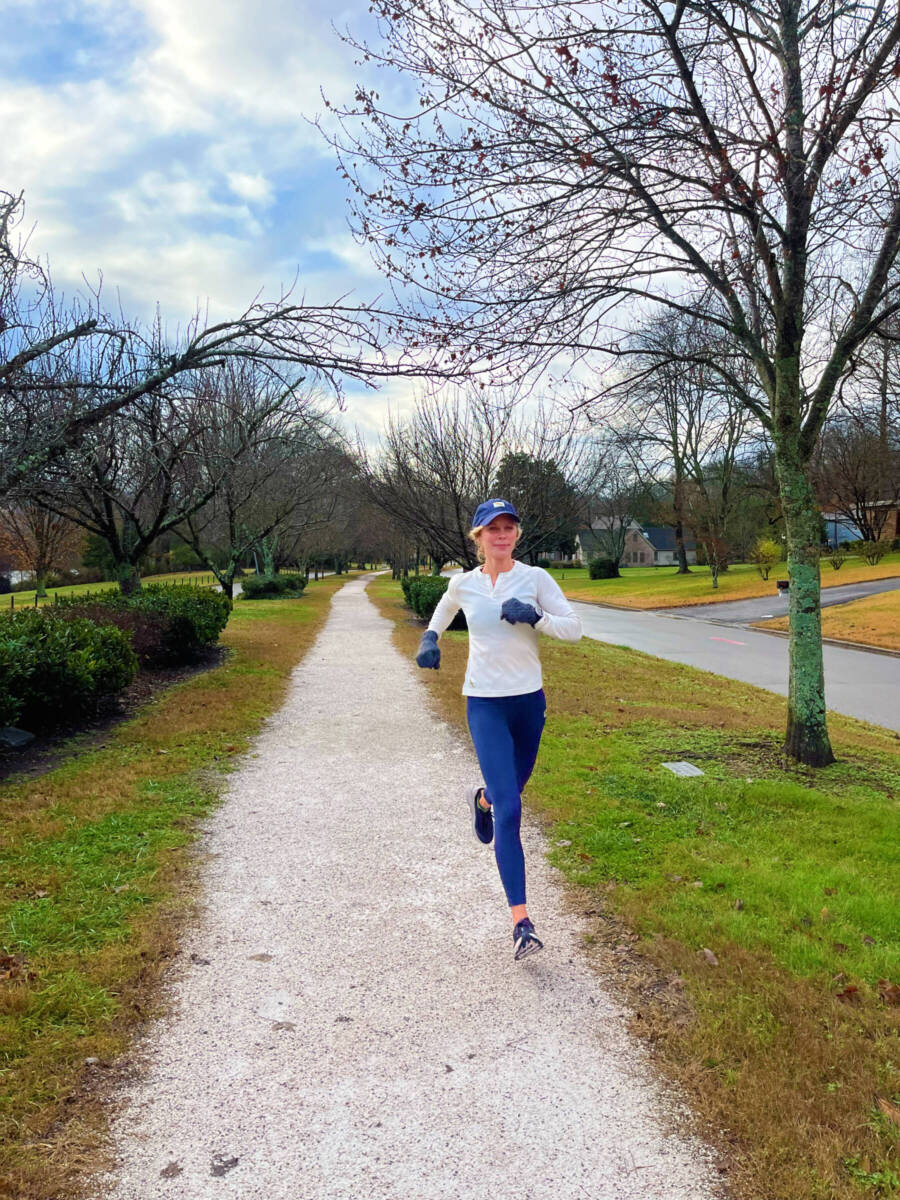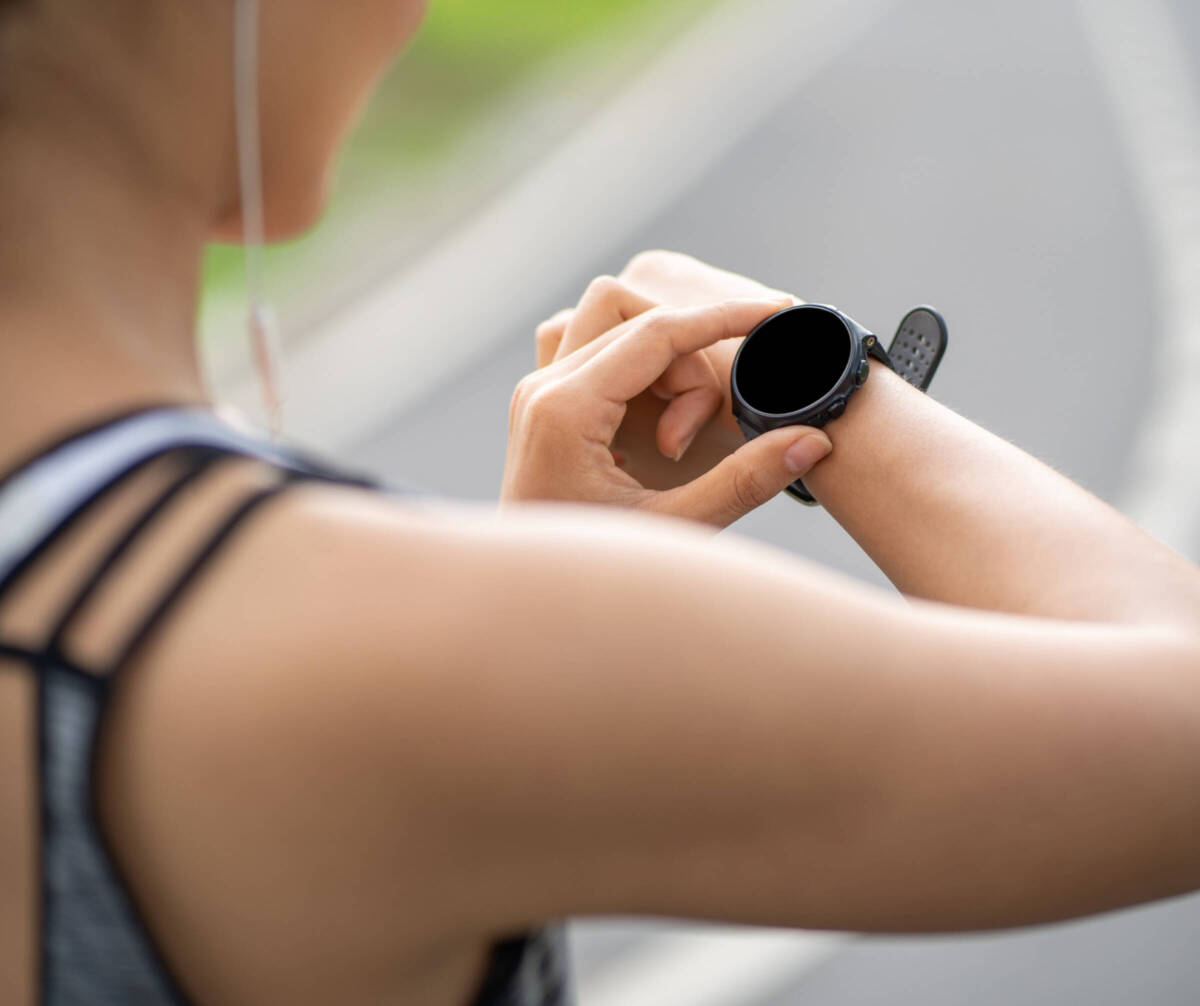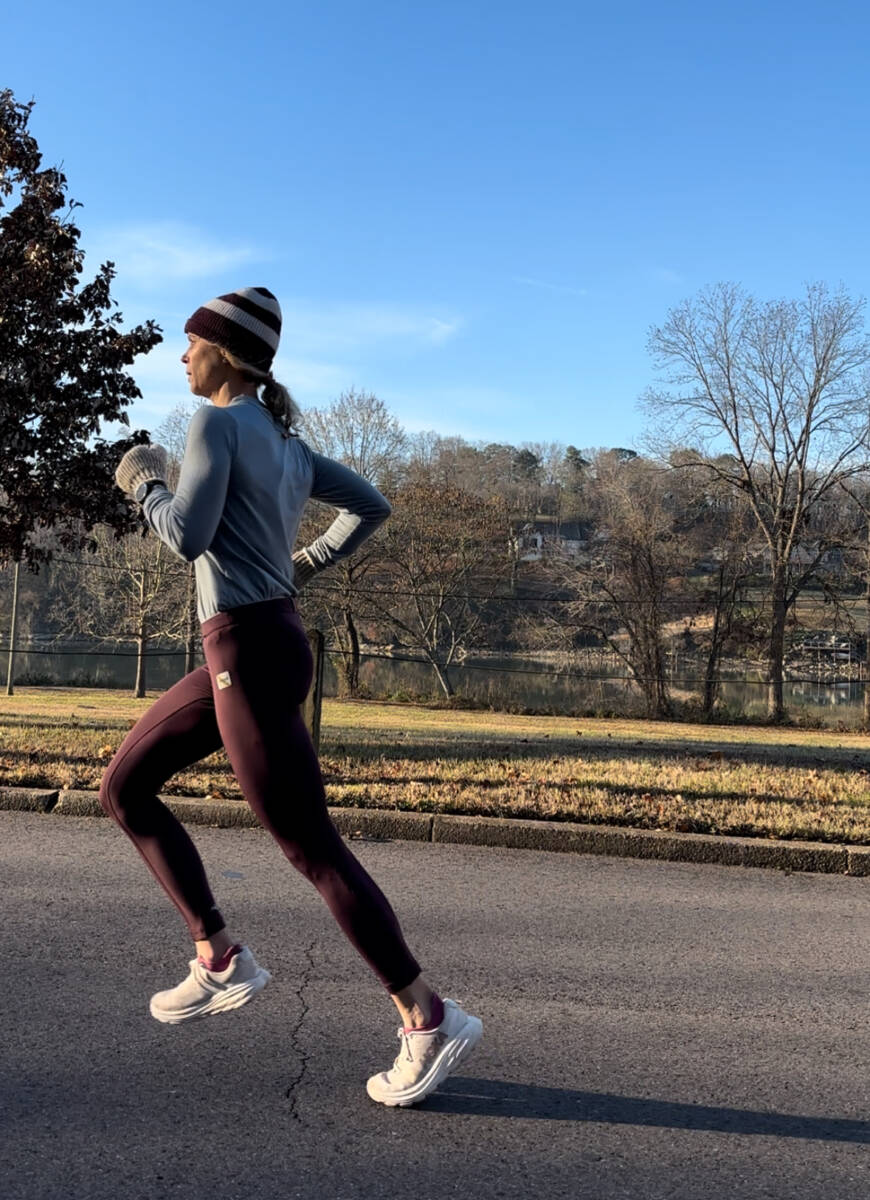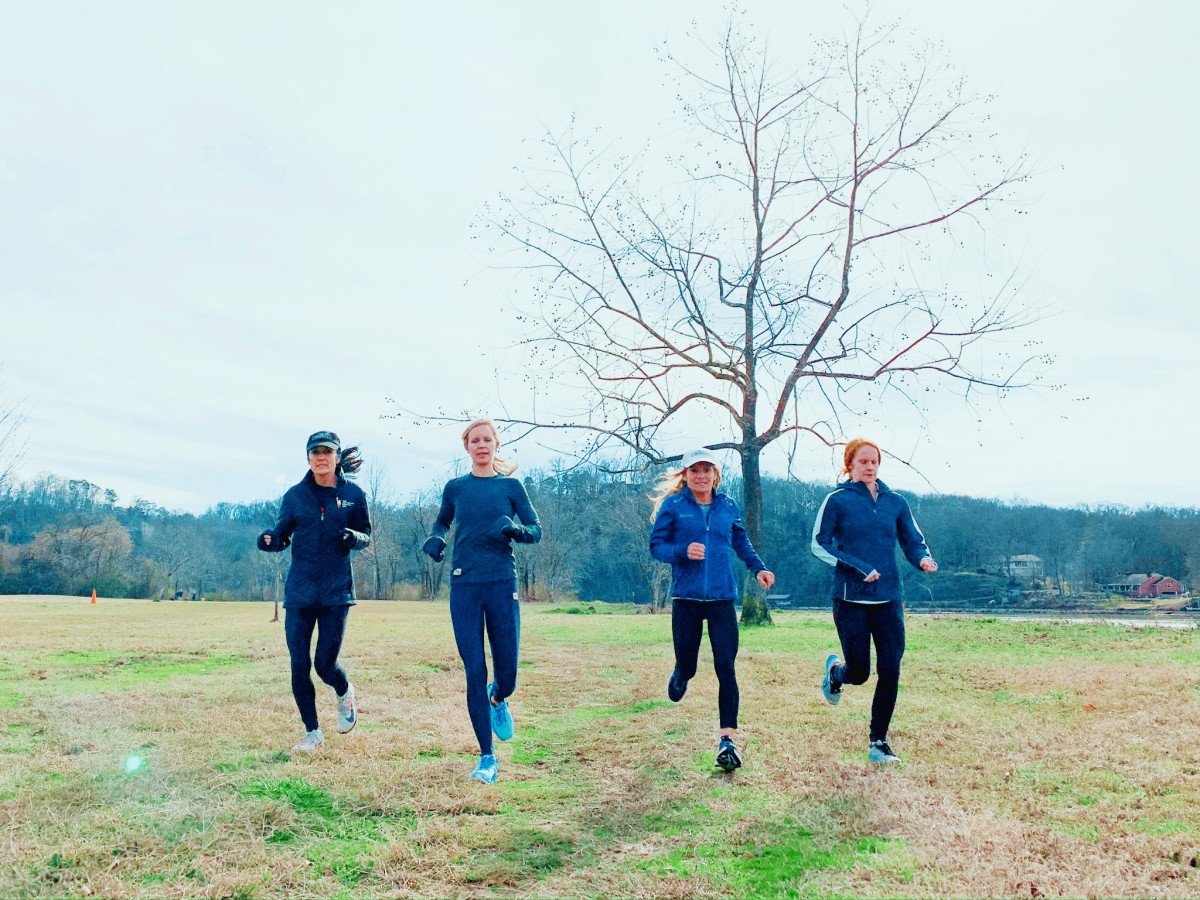Overcome Barriers to Eating Before You Run
Many runners struggle with eating before they run. Some runners may wake up early and don’t have time to digest breakfast before running. Others may think eating before running defeats the purpose of running if the goal is to lose weight. Some runners don’t eat before running to avoid tummy troubles.

However, if you skip breakfast, your running performance will suffer, your run will feel harder than it should, your recovery will suffer, you will lack energy, and you may end up gaining more belly fat. There is little to be gained—and little fat to be lost—if you skip your pre-run fuel.
I have helped many of the athletes I coach overcome barriers to fueling their runs so they go on to run better and feel better. It’s something I deem very important as I have suffered the consequences of running under fueled. There are still some times that I haven’t eaten before running and end up regretting it. My runs felt terrible—my body felt sluggish, and my legs felt like lead. And I felt tired the rest of the day.
In this article, I did research and spoke with nutrition experts to help you learn how to fuel to run and feel your best.
Let’s go!
Overcoming Barriers to Eating Before Running
I get tummy troubles when I eat before I run.
To avoid GI distress from eating before running, you want to keep the foods simple, give yourself time to digest the food, and practice and experiment with your fueling. Specifically, if you experience tummy troubles from pre-run fuel:
- Eat a snack 2 hours before running and any meal at least 4 hours before running
- Keep your pre-run snack simple with little to no protein or fiber, such as a plain bagel or two graham crackers
- Experiment with pre-run fuel and practice! Your stomach is a muscle that needs to be trained to digest and run.
I wake up early to run and don’t have time to eat.
If you are a morning runner, I get it. It can be hard to wake up an hour early to eat before running. Don’t worry, you have options:
- Eat a simple and small pre-run snack such as half a plain bagel, honey stinger waffle, or crackers as you head out the door. Practice makes perfect to train your gut to do this.
- You may also have juice or a fruit pouch.
- You can also eat a bedtime snack before bed to stock your glycogen stores before your morning run.
I don’t want to eat before running because I want to lose weight.
A lot of people get into running to lose weight. Therefore, they think—why should I put in calories when I am trying to burn them off? I understand that reasoning but some facts will help shift your view.
- Adding the stress of not eating with the stress of exercise can disrupt hormones responsible for maintaining healthy glucose levels, appetite regulation, and body composition. Therefore, not eating before running can cause thyroid issues, a lost period, muscle catabolism, and more belly fat.
- If you eat before you run, you will be able to run farther and faster allowing you to burn more calories. Studies show people who fast before running have poor performance.
- You will be able to recover faster as well which will help you hit your next workout harder (so you can burn more calories).
Please note these effects are mostly tied to people, specifically women, who fast before running.
- If you eat a meal four hours before your run, you will likely still have fuel in your system for your run—to a point.
- If you are running shorter than an hour, most people will not experience negative effects.
- If you run longer than an hour, it’s likely you’ll have poor running performance.
Key Tips for Eating Before Running
- Eat a light snack of 200-300 calories of carbs about 1-2 hours before running.
- A good pre-run snack includes a bagel, waffle, or crackers.
- Big or heavy meals should be eaten at least four hours before running.
- Avoid eating foods high in fat, protein, sugar, spices, and fiber before running.
- You can skip a pre-run snack if your run is less than an hour at an easy pace (if you must—but not advised).
When You Don’t Need to Eat Before Running
There are some cases in which you don’t have to eat before running. These include:
- Short easy runs under an hour.
- You’ve eaten a meal within 4 hours of running.
- You ate a bedtime snack before an early morning run.
- You are an overweight man trying to lose weight.
FAQs about Your Pre-Run Meal
Why is it good to eat before running?
If you care about your running performance, energy levels during and after running, recovering well, and building muscle—then you want to nourish your body before running.
Many people think that eating before you run defeats the purpose of running if your main goal is to lose weight.However, the opposite is true, says registered dietitian Jen Scott. If you skip your pre-run snack or breakfast:
- you will not be able to run as far
- your run will feel sluggish
- you will feel less energy after your run (not something mother runners need to deal with!)
- your recovery for your next run will be slower, and
- you may experience disrupted hormones and muscle wasting.
For the athletes I coach who are intermittent fasters, I explain how eating before their run will help them run faster and farther—so they end up getting more out of each run. Skipping the pre-run fuel is short-sighted and will leave them less fit and possibly heavier in the long run.
What happens if you run on empty stomach?
If you run on an empty stomach for a run less than an hour, you will be okay but you may run out of energy on your run. If you run on an empty stomach for runs longer than an hour, you face the possibility of running out of energy, also called “bonking.” Bonking, or hitting the wall, is when your legs feel like lead and won’t turn over. You may feel lethargic and light-headed.
If you regularly run un-fueled or under fueled, you may cause imbalanced hormones, increased belly fat, and muscle wasting, among other issues.
Is it OK to eat 30 minutes before running?
Ideally, you want to eat your pre-run meal 1-2 hours before running to allow for digestion and gastric emptying before running. However, you can eat a small pre-run snack 30 minutes before running. This pre-run snack would be about 2-300 calories of simple carbs.
To be honest, I am often eating a plain bagel as I put my shoes on to go running. This does not upset my stomach as I have trained my gut over time to digest food as I run.
What foods to avoid before running?
You want to avoid foods that are highly processed, spicy, high in protein, fried, or greasy; high-fiber foods, fatty foods, dairy products, and new foods before running. Otherwise, you will get an upset stomach and have a terrible run.
What foods should I eat before running?
Eat mostly carbs before running. According to registered dietitian for runners, Kristy Baumann, good pre-run foods include:
- oatmeal
- bagel
- pop tart
- waffles such as HoneyStinger’s waffles
- HoneyStinger’s Oat and Honey Bars
- piece of toast with some peanut butter
- a banana with peanut butter
- or a glass of juice
I hope these general guidelines for how to fuel your runs gives you enough energy to make it to the finish line or tap into your optimal performance! If you want guidance with your running goals, including how to fuel your runs, check out my run coaching services. Do you eat before you run?







“ Why should you eat before you run? In short, your running performance will suffer, your run will feel harder than it should, your recovery will suffer, you will lack energy, and you may end up gaining more belly fat.”
I think this is the OPPOSITE of what you’re actually trying to say!!! You might want to add “if you don’t eat” somewhere in there!!
Aww thank you! Fixed!